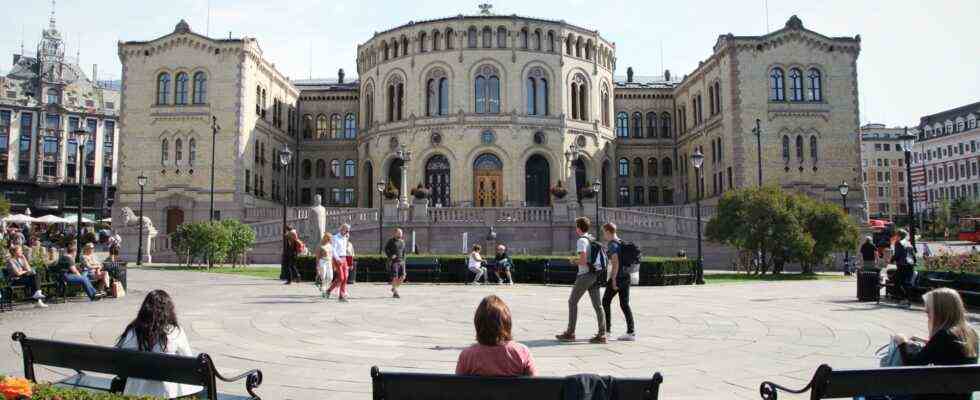Status: 13.09.2021 05:03 a.m.
Norway elects a new parliament today. According to surveys, Prime Minister Solberg’s conservative-bourgeois alliance is about to end. The attitude of the parties to the climate crisis could be decisive for the election.
It’s not as if the topic of climate protection has never played a role in Norway – on the contrary: Almost all electricity is generated by wind power, there are a noticeable number of electric cars on the roads and in a few years the nationwide CO2 emissions are to be halved will. Both major people’s parties, the conservative Høyre and the Social Democratic Labor Party, emphasize how important climate protection is to them. Nevertheless, both want to hold on to the oil and gas production, because the wealth of the country is based on it.
Big parties do not score points when it comes to climate protection
The incumbent Conservative Prime Minister Erna Solberg referred to the climate plan for the country initiated by her government during a TV debate. For example, the government has decided that all new ferries and speedboats must be emission-free from next year. Her challenger, 61-year-old Social Democrat Jonas Gahre Støre, also brought plenty of climate protection proposals with him: “Everything that can be electrified must also be electrified. We still need renewable energies. By that I mean hydropower and wind turbines on land and in the sea . “
Nevertheless, both parties do not benefit from the fact that environmental and climate issues are currently very popular with Norwegian voters.
Exit required for the first time
According to surveys, the possible coalition partners are increasing instead. The Greens criticize that Norway is one of the world’s largest oil exporters, because you cannot position yourself as a climate protector. As the first party in Norway, the Greens are now calling for a stop to the development of new oil and gas fields and a complete phase-out by 2035. The deputy party chairman Arild Hermstad does not accept that Norway is producing oil in a very clean way.
I think that is very dangerous. In the short term there may be something to it, but it is a long-term challenge. If you take climate protection seriously, it is not enough to extract oil a little cleaner than your neighbor. We have to replace the oil industry with other, more sustainable branches of the economy.
Change of government is considered likely
Although the Greens are currently only around five percent in surveys, they could tip the scales in the end. Because a change of government is considered likely, but that is not due to the success of the Social Democrats, explains the political scientist Rune Karlsen from the University of Oslo:
The Social Democrats will not do well in this election; it will most likely be the worst result in 100 years. But their coalition partners, the Center Party, Socialists, Greens and the Reds, are all likely to do well. When the climate report came out in August, the issue really took off in Norway and the small parties are benefiting from it.
At that time, the Greens were able to post a record increase of more than 700 new members within one day. The party has already announced that it will only support a government that supports its course in the oil industry. Coalition negotiations could be difficult for Social Democrat Gahr Støre. Because all four possible coalition partners will presumably demand a lot of concessions.
Norway elects a new parliament
Sofie Donges, ARD Stockholm, September 12, 2021 4:13 p.m.

